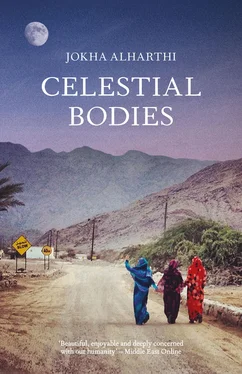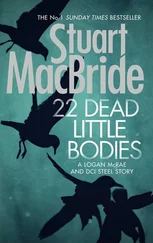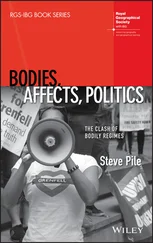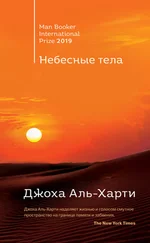Now Saturn was at the pole of the sky, gazing toward the two lit bodies — the sun and moon — as the two fell away from each other.
He blended the saffron, flax, brain matter and fleece and burnt it until it was a proper incense, of the right density between his fingers. He put on the ritual garments for his communication with Saturn. Saturn! Saturn demanded a length of black and green silk. On the wrist he held closest to the planet he wore cast-iron armlets, bones in his hand.
The solitary man in the desert launched his fervent call. Great Sayyid, Victorious One, Crusher of All, Mighty Spirit, of Pure Mind and Broadest Understanding, Piercing of Gaze and Astuteness, Resilient King and Sultan who Vanquishes Time itself, Causer of Pain, Saturn! Cold Dry Star, Loyal Star, True in Affections, Master of Sorcery and Cunning, Angry and Powerful in Malice, Ever Able, Ever Realizing your Dark Promises, Bringer of Pain and Torment, Shaykh of Craft and Deception, Bringer of Woe on Whosoever Attempts to Thwart Him, of Misery to Whosoever Resists Him — I entreat you, Father of Fathers, Most Deserving of the fealty of your great ancestors and honourable associates, on the Truth of Your Creator and the One who gives you power, Bringer of all that is sublime and all that lies below the earth, Possessor of all: I entreat you to cut Najiya, daughter of Shaykha, from Azzan, son of Mayya, in the name of these spirits of the other world; to separate them as darkness is separated from light, and to lead them to despise each other, ever enemies, like the enmity between fire and water. I ask you, Great Father, to do nothing other than knotting Azzan’s carnal desire for Najiya to make that knot — by the power of these otherworldly spirits — as hard and fast as the knotting of these rock faces and boulders.
Now that Asma was married, Khawla was alone in the house with her mother. On rare occasions her father joined them. He never smiled.
Although her mother was not severe with her, Khawla felt dejected and irritated by the constricted life at home as the days went on, and she withdrew into herself more and more. Her single-minded fixation on her figure and her looks became an obsession. She almost went mad. She waited for Nasir with a conviction that simply would not admit any of the doubt others were trying to instil in her. She was Virginie in the tale of Paul and Virginie; Layla in the legend of her poet-lover’s devotion, so obsessive he was nicknamed Majnun, the Mad One; she was the tragic Juliet. She was all the women through all the ages whose love had been eternal and true, who had sacrificed themselves out of loyalty to that love. The only passage that had meant anything, amongst the many cultural nuggets with which Asma was always trying to refine her, was the story about the souls split apart who were forever searching restlessly for completion and would find rest only when they were reunited. Khawla discovered that this idea was not in The Dove’s Necklace after all, but in a much less famous book called al-Zahra . The important point, though, was that Nasir was her half-soul, and so he would inevitably come back.
Nasir came back.
True, she had to wait another five years and refuse at least ten offers of marriage before Nasir returned. But he came back to her.
At least, that’s the way it looked to her. The truth was that Nasir came back having completely run out of funds in Canada. Years before, his scholarship had been suspended. He had lived on the very limited expense money that his mother had sent him secretly, plus minor jobs that he never stayed with for long. Then his mother died. He was thrown out of his latest job. He had no choice but to come back to al-Awafi, where he soon discovered that his mother had put conditions on her will. If he wanted his inheritance he was to marry Khawla. So he married Khawla, and he got the money, and two weeks after the wedding he flew back to Canada.
Before his mother’s death, Nasir had settled down with a girlfriend in a little house in Montreal. Returning from his short funerary visit to Oman, he didn’t see any compelling reason to tell her about his marriage. For ten years, Nasir returned to Oman once every two years to see the new child in his house and to leave Khawla pregnant again.
Khawla held on fiercely to her dream. Nasir had come back to her and she would not lose him a second time. The more patience she showed with his serial abandonment, the more estimable she seemed in her own eyes, if not in anyone else’s, and the more sense it all made to her. Her painful life was exemplary; it was the epitome of the greatest sort of love, a sublime and self-immolating love that could not be shattered by anything, not even the cruel harshness of the lover, who would no sooner arrive in Oman than he would wrap himself in long telephone conversations; who hung a photo of his Canadian girlfriend on his car key ring; who brought fancy clothes from Canada for his children but never in the right sizes because he didn’t even know how old they were.
Whenever her sisters or her mother rebuked her, Khawla’s response was the same. He works there, but he’ll come back to his own country in the end. He’ll come to his senses, he’ll come back to his wife and children, and his home. He’s a good man at heart and that’s what will bring him back.
When her dream came true — when the Canadian girlfriend left Nasir, throwing him out of the house in Montreal — he and Khawla had already been married for a decade. He came back. He found a good job in a company, and he began to get to know his wife and children.
At about the age of ten, London would accompany her mother regularly on jaunts to The Family Bookstore in Muscat. Her mother always bought children’s books in English for her. Although by then there were quite a few bookstores in the city, The Family Bookstore was the oldest and remained the most prominent. It was no longer dedicated to the purpose for which it had been established late in the nineteenth century: founded and built as a shop specialising in Bibles, it was an arm of the American missionary effort in Oman. But at some point, someone realised that a general bookstore offering a good range of titles would be more appealing to the ordinary reader than a shop selling the Gospels. And so, in the late 1960s, it acquired a new name and a larger footprint, and there were even attempts to launch branch outlets. The reputation it gradually made for itself as a secular bookstore led to criticism. The Middle East Council of Churches invested in major efforts to return it to its missionary commitments.
Mayya wasn’t concerned with the bookstore’s religious history. She had a single, clear goal: that London learn to read in English. Later, her aim was that Muhammad learn to speak. When he turned five her efforts finally bore fruit and the boy began to talk. But he used words differently than other children did, and his communications with us remained fundamentally dependent on signs and gestures.
Although the doctors made it clear to me that autism was not an inherited condition, nor did it have anything to do with the environment, the uncertainty about what had caused it persuaded Mayya and me not to have any more children.
When I see Muhammad, I try to remember things about my own childhood. How did I feel about life when I was his age? But whatever floats to the surface of my consciousness is connected to the Big House, built of gypsum plaster which my father rebuilt in cement, adding on many more rooms. I can remember the exact colours of the balls I was not allowed to play with in the street with the other boys; the tiny flashing mirrors on my Indian-made coat; the statuesque figure of my uncle’s wife before they moved to Wadi Aday; the fat gold bracelets on my aunt’s wrist; the fragrance of the paper-thin bread as Zarifa pulled it from the hot oven; the horn of peppercorns in my mouth on the day Habib married her.
Читать дальше












